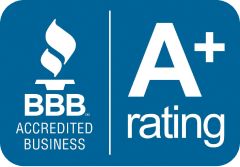Find the Best affordable
Medicare Plan



Andrew Smith
When to Apply for Medicare
When to Apply for Medicare: For many seniors, determining when to apply for Medicare can be a difficult task. Here are some frequently asked questions and answers concerning when and if different types of Medicare should be applied for.
Who needs to apply for Medicare?
You may not be required to enroll in Original Medicare, Parts A, and B, but you may have choices in terms of the sort of Medicare coverage you receive.
You must be a U.S. citizen or a legal permanent resident of the United States for at least five years to be eligible for Medicare. When you reach the age of 65, you will be automatically enrolled in Medicare if you are receiving Social Security or Railroad Retirement Board (RRB) payments. You also qualify for automatic enrollment if you’re under 65 and have been receiving disability benefits from Social Security or the RRB for two years, or if you have ALS (amyotrophic lateral sclerosis, often known as Lou Gehrig’s illness).
If you are not eligible for automatic enrollment in Medicare, you must apply when you are. See Do I Need to Apply for Medicare? for further information on whether you need to apply for Medicare.
How do I get a Medicare Supplement Insurance plan?
Only if you already have Original Medicare, Parts A, and B, may you purchase a Medicare Supplement insurance plan. Private insurance businesses sell Medicare Supplement Insurance coverage.
Medicare supplement insurance programs work in conjunction with Original Medicare to cover cost gaps.
If you’re considering a Medicare Advantage plan, keep in mind that you can’t combine it with a Medicare Supplement Insurance plan.
Initial Enrollment Period (IEP)
Before you qualify for Medicare, you might want to research the type of Medicare coverage you’d like to have. That’s because a good time to do add to, or change, your Medicare coverage maybe during the Initial Enrollment Period (IEP), described below.
The IEP for Original Medicare, Part A, and Part B, is the time window during which you first become eligible for this coverage. It’s also a time when you can add or change Medicare plan options.
If you are eligible for Medicare due of the following reasons:
- You’re 65 years old, and your IEP is for seven months. It begins three months before your birthday month including your 65th birthday month and concludes three months after your birthday month. If your birthday is in March, your IEP will begin on December 1st and end in June.
- You’ve been receiving Social Security or RRB disability benefits for the past 24 months, and your IEP is also for seven months. It begins three months prior to the end of your 25th month of disability benefits and lasts until the end of your 28th month of disability benefits.
Because you have ALS (Lou Gehrig’s disease), you’ve started receiving disability payments from Social Security or the RRB. Your Medicare coverage begins the same month as your disability benefits.
If you have the end-stage renal disease (ESRD) and are receiving Social Security or RRB disability benefits, or if you qualify for those benefits (perhaps through a family member or spouse), your IEP will begin as soon as you become eligible for Medicare and will last for three months.
You can avoid late-enrollment fines if you enroll in Medicare prescription drug coverage as soon as you become eligible for Medicare (whether through a stand-alone Medicare Part D Prescription Drug Plan or a Medicare Advantage Prescription Drug Plan). If you choose to keep Original Medicare and add a Medicare Supplement (Medigap) plan, the Medigap plan must accept you if you enroll during the 6-month period that begins when you turn 65 and enroll in Part B. If you don’t purchase a Medigap coverage now, but later decide to do so, the plan may refuse to accept you.
General Enrollment Period
Every year, the General Enrollment Period (GEP) for Original Medicare runs from January 1 to March 31. If you weren’t automatically enrolled, you can sign up for Medicare Part A or Part B during this time.
Late-enrollment fees
If you don’t qualify for premium-free Medicare Part A, you may be charged a late enrollment penalty if you enroll during the GEP rather than your IEP. In general, if you have worked for at least 10 years (40 quarters) while paying Medicare taxes, you will be eligible for Part A coverage without paying a premium.
If you enroll in Medicare Part B during your GEP rather than your IEP, you may be charged a late-enrollment penalty. For each 12-month period during which you were eligible for Part B but did not enroll, the penalty is normally 10% of your Part B premium.
You may not have to pay a late-enrollment penalty if you qualify for a Special Enrollment Period (SEP) for Medicare Part A or Part B; see Special Enrollment Periods below.
Annual Election Period
You can enrol, drop, or switch Medicare Advantage (Medicare Part C) and Medicare Prescription Drug Plans during the Annual Election Period (AEP). Every year, it runs from October 15 to December 7.
You may have to pay a Medicare Part D late-enrollment penalty if you decide you desire Medicare prescription drug coverage during the AEP rather than your IEP.
Medicare Supplement Open Enrollment Period
Your six-month Open Enrollment Period begins the month you turn 65 and are enrolled in Medicare Part B if you wish to add a Medicare Supplement (Medigap) plan to your Original Medicare (Part A and Part B) coverage. If you miss this deadline, you may not be able to enroll in a Medigap plan.
Special Enrollment or Election Periods (SEPs)
You may be eligible to enroll in Medicare during an Exceptional Election Period if you have certain special conditions (SEP).
Some instances of these situations for Original Medicare, Parts A, and B, include, but are not limited to:
- You’re covered by a group health plan offered by your company or union (yours, your spouse’s, or a family member if you’re disabled). As long as you (or your spouse, or a family member if you’re disabled) are working, you can join up for Original Medicare (Part A and Part B) at any time.
- Your coverage under a group health plan offered by your work or union expires. Starting the month after your work expires, or the month after your employment-based health plan insurance finishes, whichever comes first, you have eight months to sign up for Medicare.
Special Election Periods apply to other Medicare programs, such as Medicare Advantage and Medicare Prescription Drug Plans. The following are some instances of these scenarios for Medicare Advantage and Medicare Prescription Drug Plans:
- Moving to a new place that isn’t covered by your plan
- Transferring to, living in, or leaving a long-term care hospital or skilled nursing facility.
- Loss of coverage, such as when Medicare cancels your plan’s contract.
At what age should I apply for Medicare?
You must enroll during your Initial Enrollment Period if you do not qualify for automatic enrollment (IEP). In most cases, you can enlist three months before your 65th birthday. You can enroll in Medicare before you turn 65 if you have a qualifying disability, as indicated above. Contact the Social Security Administration if you have any questions concerning Medicare eligibility or enrollment:
On the Social Security Administration’s website.
From 7 a.m. to 7 p.m., Monday through Friday, call 1-800-772-1213 (TTY users can dial 1-800-325-0778).
In-person at a Social Security office near you.
Can I postpone Medicare enrollment without penalty?
If you continue to work and are covered by an employer’s or union’s health insurance plan (or your spouse’s plan) after you reach 65, you can normally postpone enrolling in Medicare until you need it. If you want to put off enrolling in Medicare, for this reason, you must do so as soon as your employer-based health coverage ends.
Read More: Medicare Open Enrollment 2022 Best How to enroll Guide
More to explorer

Early Medicare (How to know If you Are Eligible)
How old do you have to be to get Medicare? Early Medicare: Do you want to know when you can start receiving

Do I need to sign up for Medicare at 65 if I’m still working? (Need to Know)
Q: If I’m still working at 65, do I need to enroll in Medicare? A: Medicare eligibility begins at age 65, and enrolling early

Medicare Open Enrollment 2022 Best How to enroll Guide
Medicare Open Enrollment 2022 Guide: A multitude of techniques is available to verify the status of a Medicare application, including: Using the

